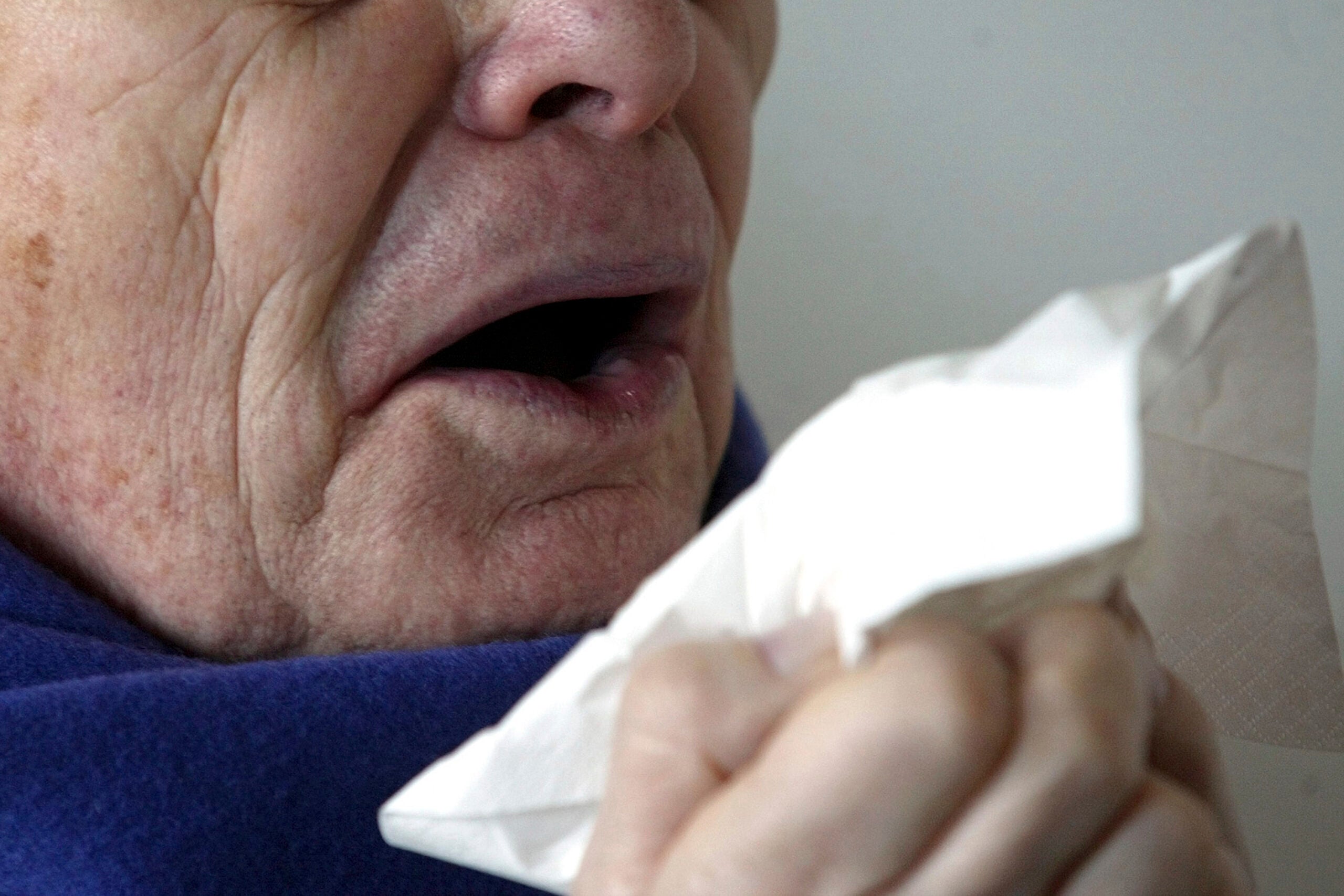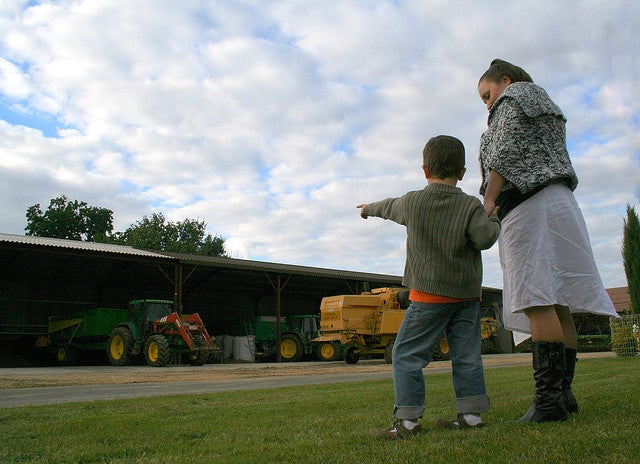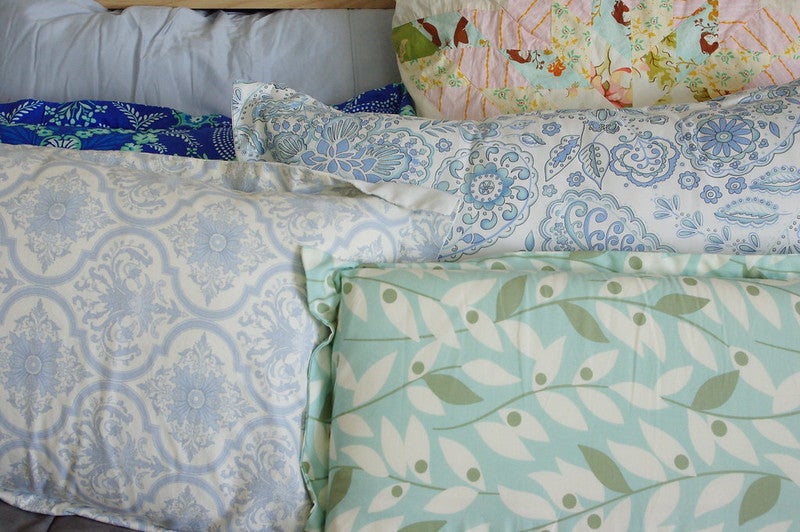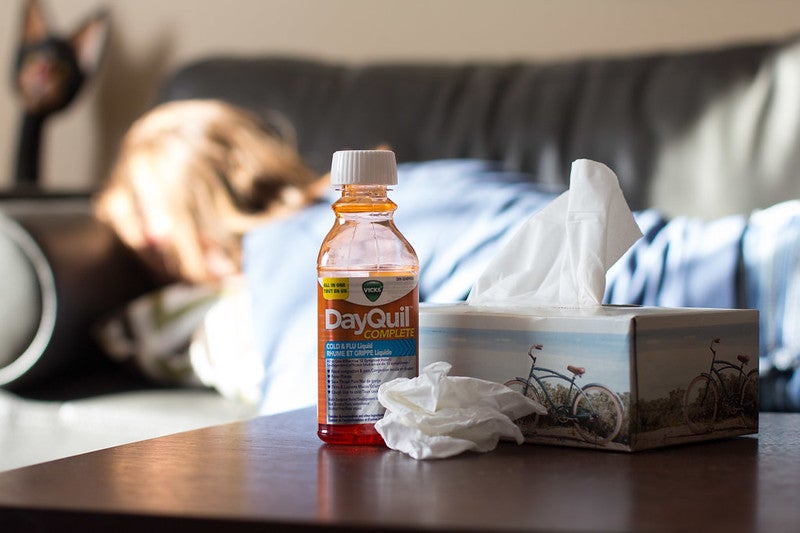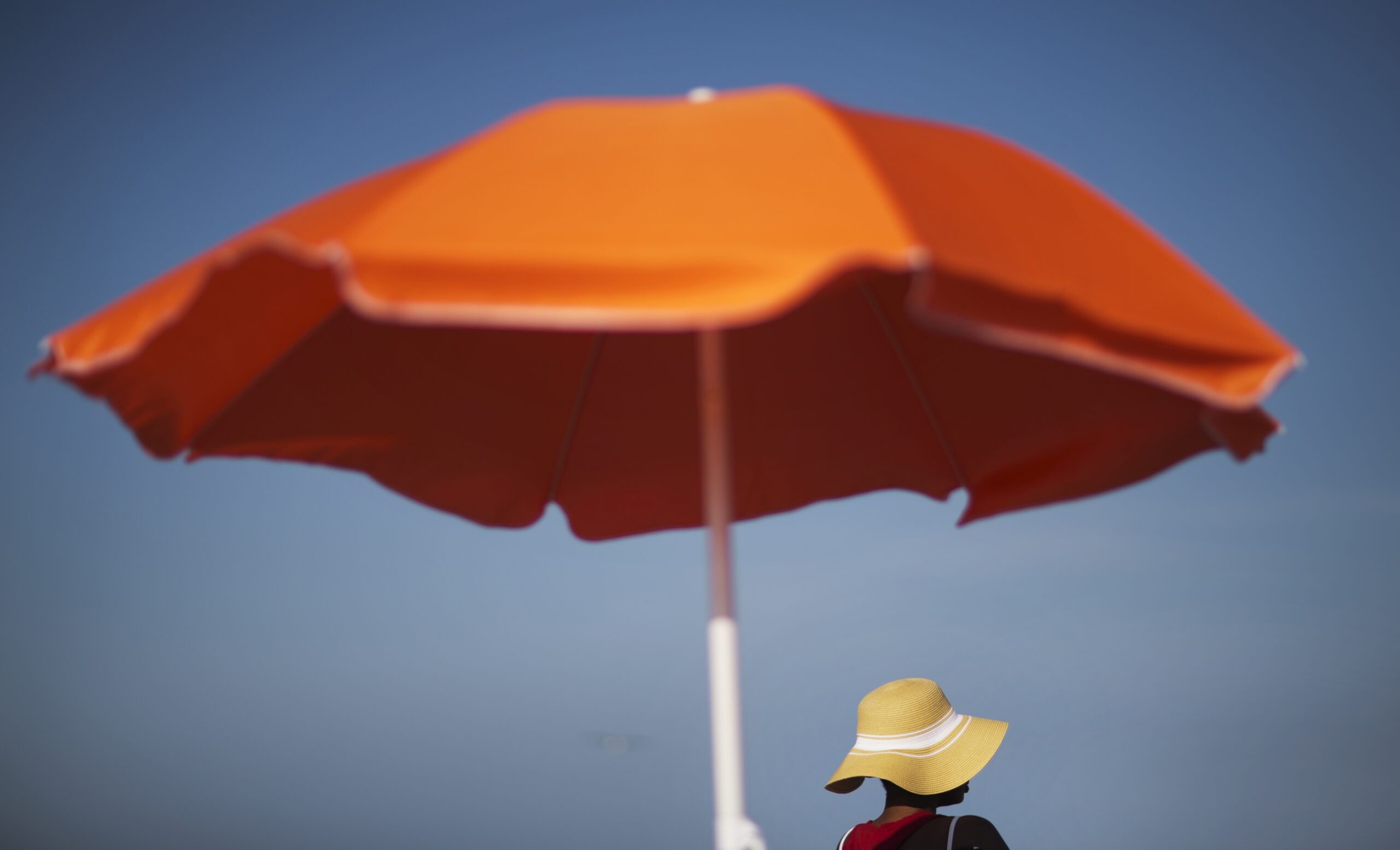Don’t let the April snowstorms fool you: Allergy season is upon us.
The sneezing. The itchy eyes. The runny noses. More than 50 million Americans deal with allergies each year, according to the American College of Allergy, Asthma & Immunology.
For a condition that affects so many, some myths about allergies spread as easily as pollen itself.
Stay informed on the latest news
Sign up for WPR’s email newsletter.
When that happens, let an allergy expert clear up the confusion and the congestion.
Dr. Gary Steven started the Greenfield-based Allergy, Asthma & Sinus Center in 2003. He is certified through the American Board of Allergy and Immunology, according to the business’ website.
He joined WPR’s “The Morning Show” recently to discuss the myths about allergies, what treatments work best and what options might not work as well as some expect.
The following interview was edited for clarity and brevity.
Kate Archer Kent: What does it mean for people to have allergies?

Dr. Gary Steven: Their genetic makeup is such that they have made allergic antibodies that react with the different proteins in the different pollens. (You) start to become symptomatic when you inhale (pollen) that binds with those allergic antibodies. That (in turn) causes the release of histamine that causes the itching and the sneezing, the watery eyes, then the sinus trouble and the asthma.
And as the pollen counts go up, your exposure to these allergens goes up and the symptoms become worse. And that is why we track the pollen to give people an idea of what is out there. But in general, the tree season starts in late March to early April. It builds over two (or) three weeks and starts to fade away toward the end of May and into early June. And when the weather is warm, when it is dry, when it is windy, blowing around a lot more pollen, people are going to be a lot more symptomatic outside.
Caller: When is it best to take an antihistamine like Claritin? When is it best to take a decongestant like pseudoephedrine? What about the alternative phenylephrine?
GS: So, the antihistamines such as Claritin, Allegra and Zyrtec are going to work the best at stopping the itching. Antihistamines sit on the histamine receptor throughout the blood vessels and body tissues so that when you encounter these allergens, they react with the allergic antibodies, release histamine and then the antihistamines prevent them from binding to their receptor that causes all these symptoms. So, they are best taken prior to exposure. It is always harder to play catch-up and wait until you’re miserable and then try to beat the symptoms down. But the antihistamines do work fairly quickly, unlike the nasal steroid sprays, where it may be a few days before you reach maximum benefit. Taking an antihistamine a couple hours before exposure is usually adequate.
The decongestants are good at helping to open up the nose. When there’s so much swelling going on, it’s difficult to breathe through the nose. The decongestants work well for that.
Phenylephrine is a weaker decongestant. Most people find that it does not work as well as pseudoephedrine. … We never really used that much until (people) figured out how to make methamphetamine out of decongestants.
Caller: Does eating local honey help with seasonal allergies?
GS: That pollen (that is picked up by bees) is not airborne. You do not inhale it. You are not allergic to it. So, this is one of the biggest myths in public-facing allergy (beliefs)—that you can do a form of immunotherapy by eating local honey. That’s just not at all true. You do have pollen proteins in the honey, but it’s not the pollen proteins that you’re allergic to.
Caller: What should I be looking for to get the most out of an air purifier?
GS: I used to say that you want to protect the bedroom. Of the time that you spend in the home, you spend more time in the bedroom than anywhere else. That has blurred a little bit with work-from-home during the pandemic.
The best kind of air filter is a HEPA filter, one that is sized for the bedroom … The other important thing with HEPA filters is that you replace the filters according to the manufacturer’s recommendations. You do not do a visual inspection. By the time the filter looks dirty to you, it has lost a lot of its efficiency.
KAK: Can changing furnace filters improve the effectiveness of airflow and reduce allergies?
GS: Yes. I do recommend the thick accordion-pleated, higher-efficiency filters — the MERV 11 or MERV 13 — for the home. And those are far more efficient than the standard 1-inch-thick filters that come with most furnaces, unless you upgraded.
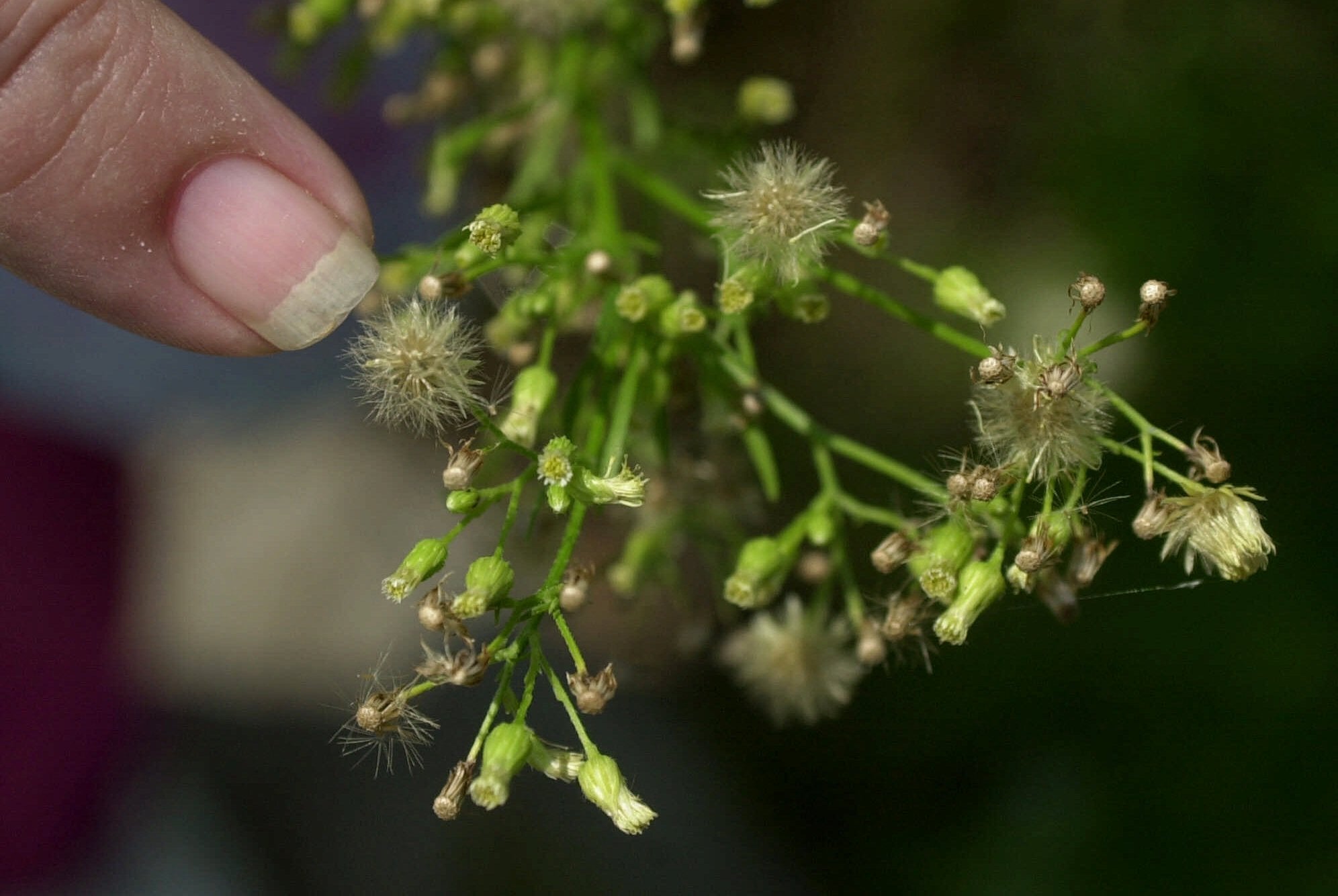
KAK: What about masks? How well do N95 masks keep out pollen?
GS: They work great for that. In terms of the pandemic, masks aren’t terribly important outdoors when you have a lot of my air moving around. But for people who are sitting in relatively confined but outdoor areas around a lot of people (and they want) to be wearing an N95 or a KN95, yes, that’ll filter out pollen, as well.
KAK: Does applying Vaseline or petroleum jelly around your nostril area do anything to help allergies?
GS: I would doubt that. I am not aware of any studies that actually looked at the symptom improvement, and most of us are not breathing that heavily. The only role for that is in a high-velocity situation, like in pollen traps.
KAK: What do you see about fluctuations throughout the day?
GS: Most plants pollinate early in the morning. So, right after the sun rises. The bulk of the tree pollination occurs from 6 a.m. to 10 a.m., which generally is not terribly important because of the winds. So, that’s when the pollen is getting released into the air, but it continues to blow around all day.
Caller: Do injections work well for allergies?
GS: The shots are the gold standard treatment. Medications—the antihistamines, decongestants and nasal steroids—those help to control the inflammation, to beat down the inflammation and to tolerate the symptoms better. But it doesn’t get at the root of the problem, which is the fact that you are making allergic antibodies. You are reactive to these environmental allergens.
The immunotherapy is the way to change the immune system to make us less allergic so there’s less inflammation in the first place. And that is why the immunotherapy works so much better than the medications and is such a great option for people who are trying to minimize the use of medications.
Caller: Are researchers looking into alternative treatments?
GS: Yes, and we have. For many of them, when we do large placebo-controlled studies, the effects are not great. That does not mean that there are not people who respond well. In medicine, when we make recommendations, we need to make recommendations that we know are going to be effective for a vast majority of people. And that is why a lot of times the emphasis is put on pharmaceuticals that are very extensively studied — studied in terms of the efficacy, side effects and drug interactions.
Wisconsin Public Radio, © Copyright 2025, Board of Regents of the University of Wisconsin System and Wisconsin Educational Communications Board.
